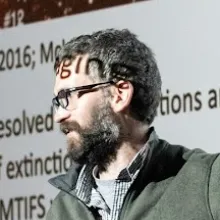A new search for strong gravitational lenses in the MAGPI survey
A new search for strong gravitational lenses in the MAGPI survey
Research themes
Project status
Content navigation
About

Massive foreground structures like galaxies and groups of galaxies can act as an efficient “cosmic telescope”, bending light and boosting the size and brightness of galaxies that lie behind them. This strong gravitational lensing, predicted by Einstein, provides both a detailed view of the background galaxies (the "source") and a unique probe of mass in the foreground object (the "lens"). This project will use new integral field spectroscopy (IFS) data taken using the MUSE spectrograph to search for strong lensing systems. Subsequent analyses for any identified systems will focus on the derivation of enclosed mass for the and comparison with complementary measurements based on the motions of stars (kinematics).
As part of this project you will: 1) carry out a search for strong gravitational lenses within the MAGPI data, 2) derive properties for both the lens and source in any identified lensing systems, 3) use these derived properties to derive mass constraints for the lens objects.
This project will provide valuable experience working with modern astronomical data sets, support the development of new computational methods, and develop your critical thinking skills while we advance our understanding of galaxy evolution. For more information about this research, or to discuss any related research area, please contact the supervisor.

